The Modern Chinese Culture Seminar, University of British Columbia The Modern Chinese Culture Seminar, sponsored by the CCK-IUC, is a collective project to promote the study of modern Chinese culture since the 19th century. The Seminar invites leading scholars and cultural figures to conceptualize new directions for the field of modern Chinese cultural studies, and to discuss these ideas in seminars, workshops, lectures, and other public forums. The seminar is convened by Christopher Rea. Mingwei Song of Wellesley College delivers a lecture on new wave Chinese science fiction and subsequently leads a seminar for faculty and graduate students at the University of British Columbia, January 11 and 13, 2017. “Mars over America: The New Wave of Chinese Science Fiction,” Lecture by Mingwei Song, January 11, 2017 On January 11, 2017, Professor Mingwei Song of Wellesley College delivered a lecture about new wave Chinese science fiction to an audience of over forty at UBC’s St. John’s College. Professor Song explained how the contemporary new wave of Chinese science fiction presents a subversive vision of China’s pursuit of power and wealth, a dystopian counterpart to the government-promoted “Chinese dream.” He reviewed the cutting-edge literary experiments that characterize the new wave, which evoke sensations ranging from the uncanny to the sublime, from the corporeal to the virtual, and from the post-human to the transcendent, covering novels such as Mars over America (Han Song, 2000), The Three-Body Problem (Liu Cixin, 2006) and The Waste Tide (Chen Qiufan, 2013). As part of his visit to UBC, Professor Mingwei Song led a seminar for faculty and graduate students on January 13, 2017 on contemporary Chinese science fiction. He argued that just as the Chinese government is dreaming a “Chinese dream,” the new wave has unleashed a nightmarish unconscious. This dark and subversive side speaks either to the “invisible” dimensions of the reality, or simply the impossibility of representing a certain “reality” dictated by the discourse of the national “dream.” The new wave of Chinese science fiction has thrived on an avant-garde cultural spirit that encourages one to think beyond the conventional ways of perceiving reality and challenge the commonly accepted ideas about what constitutes the existence and self-identity of a person surrounded by technologies of self, society, and governance. “Laughing in the Year of the Chicken: The Past and Future of Chinese Humor,” Comedian Jesse Appell in conversation with Christopher Rea, January 26, 2017 Chinese comedians should have a lot to crow about during this Year of the Rooster. But will Chinese humor in 2017 be defined by wit, satire, parody, farce, or just cockiness? On January 26, 2017, Jesse Appell, a practicing comedian based in Beijing, swapped perspectives with literary and cultural historian Christopher Rea on the past, present, and future of Chinese humor. Speaking at UBC’s Centre for Chinese Research, Mr. Appell, founder of both Laugh Beijing and the US-China Comedy Center, and Professor Rea, author of a history of laughter in China, shared examples of their favorite types of modern Chinese humor, and their experiences with Chinese humor in the club, on the street, and in the archive. On January 27, 2017, Jesse Appell performed for students, faculty, and community members at UBC Asian Studies’s Lunar New Year Gala. Mr. Appell spoke about studying Chinese comic performance in Beijing with xiangsheng master Ding Guangquan and the experience of living in an emptied capital during the Spring Festival, gave a virtuoso performance of tongue-twisters, and got a crowd of over 150 people on its feet with his own brand of hybrid live-video comic performance. Comedian Jesse Appell in conversation with Christopher Rea at the University of British Columbia, January 26, 2017. “A Billion Voices: The Past and Future of Putonghua,” Lecture by David Moser, March 20, 2017 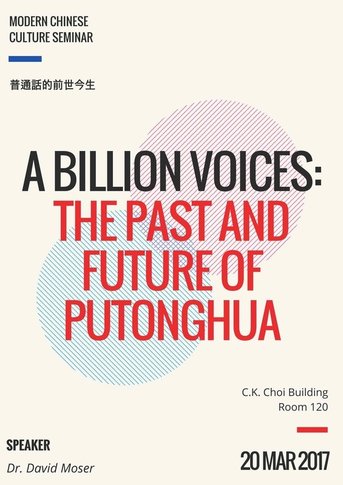 On March 20, 2017, Dr. David Moser gave a riveting talk at UBC’s Centre for Chinese Research about the history of Putonghua, China’s official language. Drawing on his new book, A Billion Voices: China’s Search for a Common Language (Penguin, 2016), Dr. Moser discussed how since the turn of the twentieth century a host of linguists and political leaders, from the radical intellectuals of the May Fourth Movement, to leaders such as Chiang Kai-shek and Mao Zedong, all fought linguistic wars to establish a national language for a linguistically fractured China. In the process, many radical proposals were put forth, such as abolishing the Chinese language itself and replacing it with Esperanto, and eradicating the Chinese characters in favor of an alphabetic script. This talk traced the story of China's language unification project, the current language policy in China, and the pedagogical issues of teaching Chinese language and script in the 21st century era of cyberspace and the Internet. Reading Gender: Blood, Body, and Ritual Violence in Chinese Religions Workshop, George Washington University, February 4-5, 2017 The one-and-a-half-day workshop, “Reading Gender: Blood, Body, and Ritual Violence in Chinese Religions,” was held on February 4 and 5, 2017, at George Washington University, with the support of the CCK-IUC. The workshop brought together 9 US scholars who are currently working on gender and Chinese religions. The purpose of the workshop was to advance the newly established sub-field of gender and religion in the China field by addressing the issue of how to read primary texts in Chinese religions from gender perspectives. The conference participants discussed a great variety of key primary texts, ranging from Buddhist and Daoist scriptures on the blood lake and blood bowl, male and female inner alchemical practices, to Chinese creation myth, literati writings on popular religious practices and courtesans’ deification, and Communist anti-shaman propaganda literature. The participants concluded the workshop on the following three points: first, the gendered reading of these texts proposes new ways to study Chinese religions; second, it would be great to have another workshop next year to deepen and expand the scope of examination from mere textual to visual materials and ethnographical reports; third, we should look for more resources to explore the possibility of propagating critical approaches to these primary texts through digital databases and online exposure. "Reading Gender: Blood, Body, and Ritual Violence in Chinese Religions" workshop, held at George Washington University, February 4-5, 2017 Rethinking Contemporary Intellectual Currents in China Workshop, Harvard University, March 28-29, 2017 The workshop, “Rethinking Contemporary Intellectual Currents in China,” was a co-effort of the Harvard-Yenching Institute and the CCK-IUC. Held at Harvard University on March 28-29, 2017, the workshop gathered prominent intellectuals, writers, and budding scholars from both sides of the Taiwan Strait and the United States. Paper presenters included Hong Kong-based writer Chan Koon-chung, scholars Chien Yong-hsiang, Ge Zhaoguang, David Der-wei Wang, Wang Fansen, Wang Hui, Yuhua Wang, Peter Zarrow, Zhou Lian, and Ph.D. candidates at Harvard’s East Asian department, Hang Tu and Wen Yu. Other Harvard faculties, including Peter Bol, Mark Elliott, Elizabeth Perry, and Michael Szonyi, also joined the workshop as discussants. A variety of topics were discussed, ranging from contemporary political issues such as oriental despotism, CCP’s anti- corruption investigations, the dissolution of social consensus, and ethnic tensions in China’s borderlands, to intellectual debates on, for example, the revival of Confucianism, different generations of enlightenment thinkers, and utopian imaginations in modern Chinese literature. The workshop brought together scholars of diverse backgrounds, specializations, and ideological inclinations and facilitated a multi-perspectival and in-depth conversation among them. The conversation kept the room packed with around 40 observers throughout the two days, including visiting scholars and graduate students from not only Harvard but also other institutions in the Greater Boston area and beyond. Rethinking Contemporary Intellectual Currents in China workshop, held at Harvard University, March 28-29, 2017. Taiwan Studies: New Directions and Connections Workshop, Harvard University, April 7-8, 2017The "Taiwan Studies: New Directions and Connections" workshop, organized by David Der-wei Wang, was held at Harvard University on April 7-8, 2017. The workshop brought together senior scholars and graduate students from Taiwan and North America and covered a wide range of disciplines spanning history, literary and cultural studies, media studies, political science, and legal studies. Following a temporal axis, the workshop began with an exploration of Taiwan literature in the colonial period and ended with an examination of contemporary Taiwan media. It also featured topics such as Taiwan’s mainlanders, legal transplantation concerning the civil law family, legislative priorities in Taiwan’s democratization, aboriginal writers in global literary productions, and the overlooked leftist historiography in Taiwan. In the concluding roundtable discussion led by David Der-wei Wang and Mei Chia-ling, participants and observers drew and discussed a list of key words that point toward future directions in Taiwan Studies: “tidalectics,” “island insights,” “scaffolding,” activism and memory, Taiwan in the world versus Taiwan and the world, among others. Work immediately began to gather and turn the fruits of this workshop into an inter-disciplinary volume, while call for papers was also made for a new journal, International Journal of Taiwan Studies. "Taiwan Studies: New Directions and Connections" workshop, held at Harvard University, April 7-8, 2017. Mayfair Yang Lecture, “Environmentalism through Religious Discourse and Practice,” George Washington University, April 29, 2017 On April 19, 2017 at George Washington University, the CCK-IUC co-sponsored the Department of Religion’s annual Berz Lecture featuring a one-day symposium on “Religion and the Environment: Old Frontiers and New Directions.” It brought the renowned Professor Mayfair Yang of the University of California at Santa Barbara to join a group of six scholars and activists to discuss the intersection of religion and ecology. The other five speakers covered Christian, Jewish, Hindu, American Indian, and Islamic texts and practices. Professor Yang offered Chinese perspectives in a talk entitled “Environmentalism through Religious Discourse and Practice: Examples from Small-Town Wenzhou, China.” She pointed out the severe environmental challenges China faces today, and how local Buddhist, Daoist, and popular religious initiatives may offer alternative solutions to China’s environmental crisis. Mayfair Yang’s lecture, “Environmentalism through Religious Discourse and Practice,” at George Washington University, April 29, 2017. CCK-IUC Sponsored Publication: Remains of Life, a Novel by Wu He and Translated by Michael Berry (Columbia University Press, April 2017) 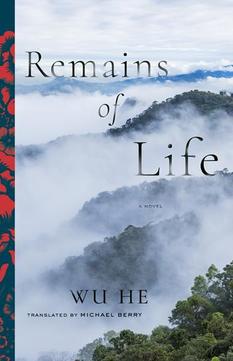 CCK-IUC sponsored the recent publication of Remains of Life, a novel by Wu He and translated by Michael Berry. This work is part of the “Modern Chinese Literature from Taiwan” series, of which David Der-wei Wang serves as the editor. Chen Guocheng, also known as Wu He, or “Dancing Crane,” investigates the Musha Incident to search for any survivors and their descendants. Remains of Life, a milestone of Chinese experimental literature, is a fictionalized account of the writer’s experiences among the people who live their lives in the aftermath of this history. Shifting among observations about the people, philosophical musings, and fantastical leaps of imagination, Remains of Life is a powerful literary reckoning with one of the darkest chapters in Taiwan’s colonial history. The translator, Michael Berry, is professor of modern Chinese literature and film at the University of California, Los Angeles. |
Archives
September 2020
Categories |

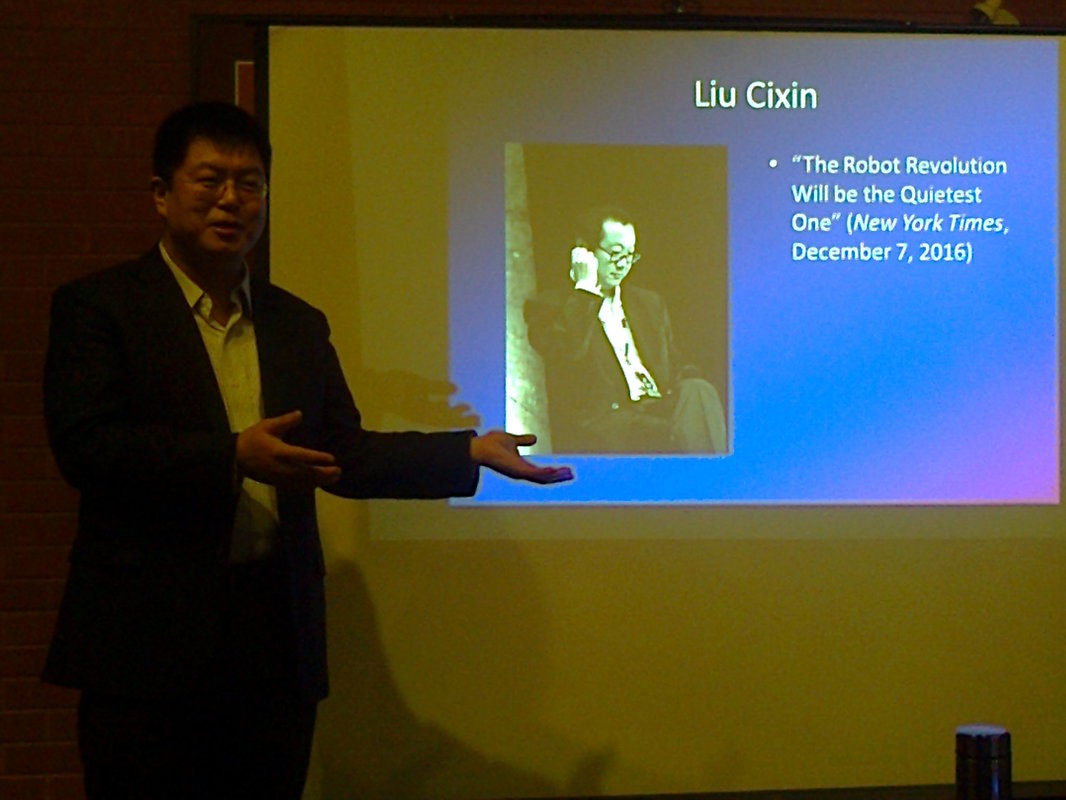
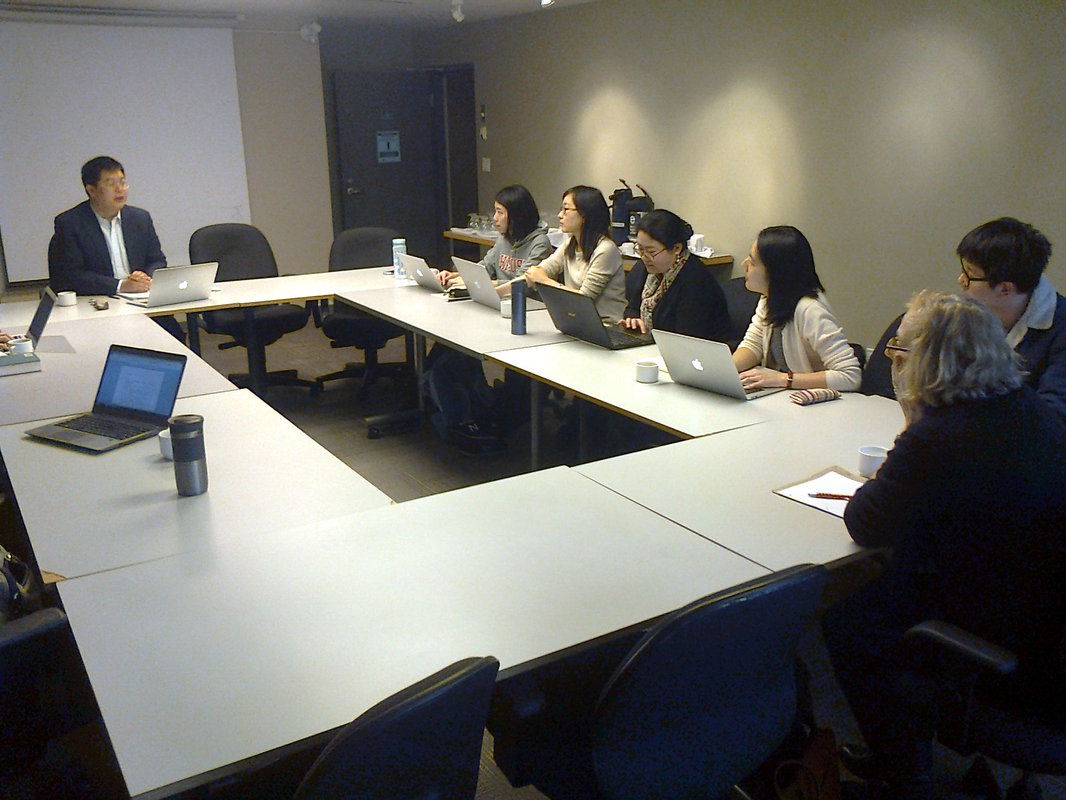
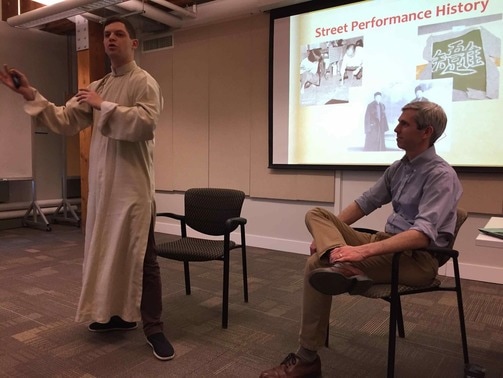
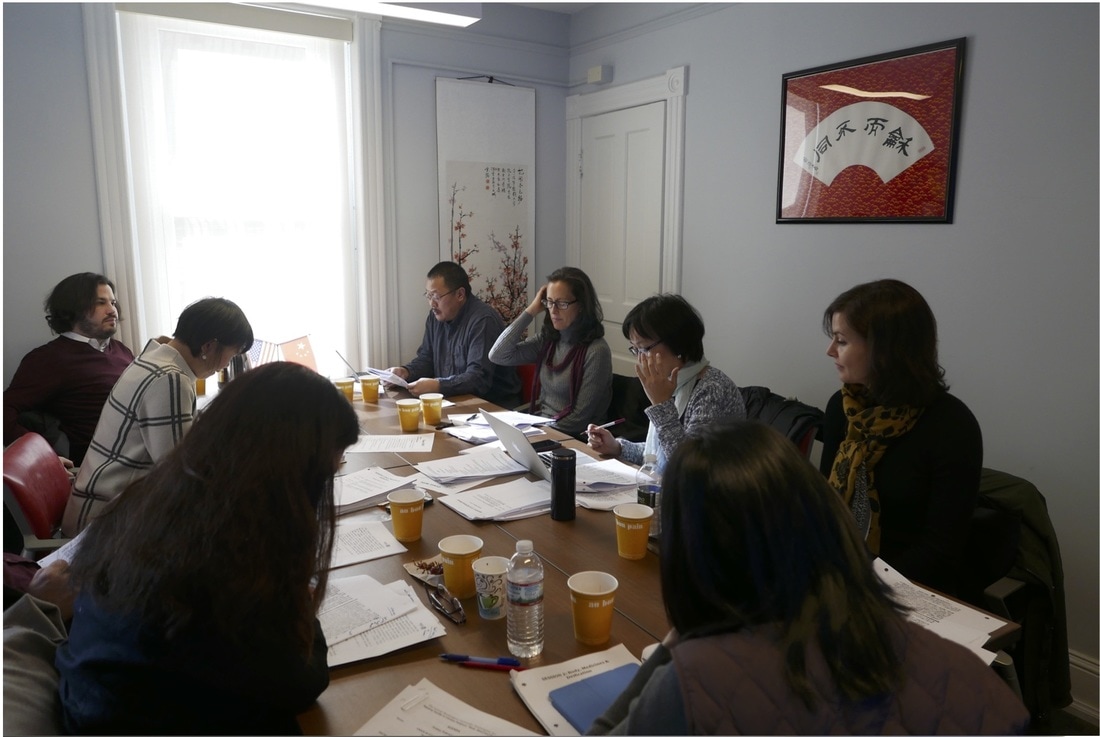
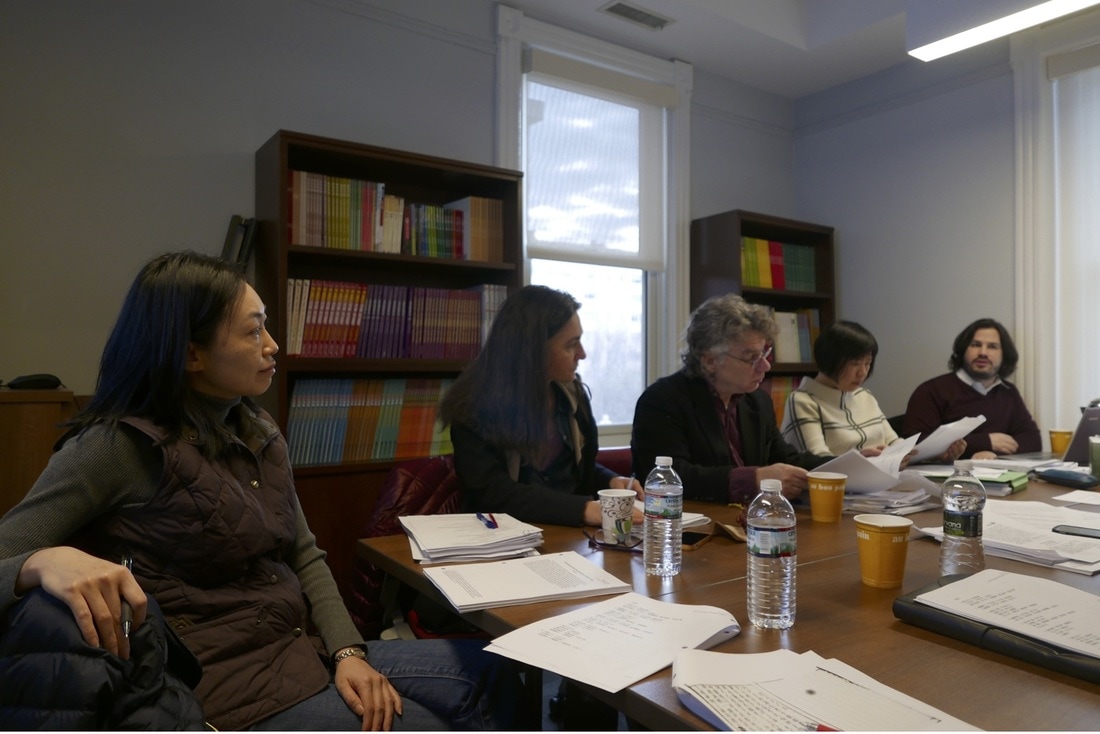
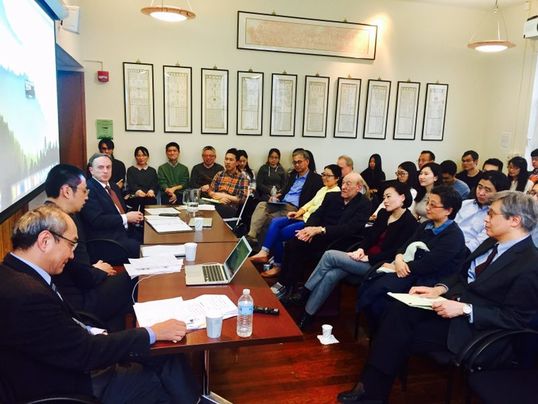
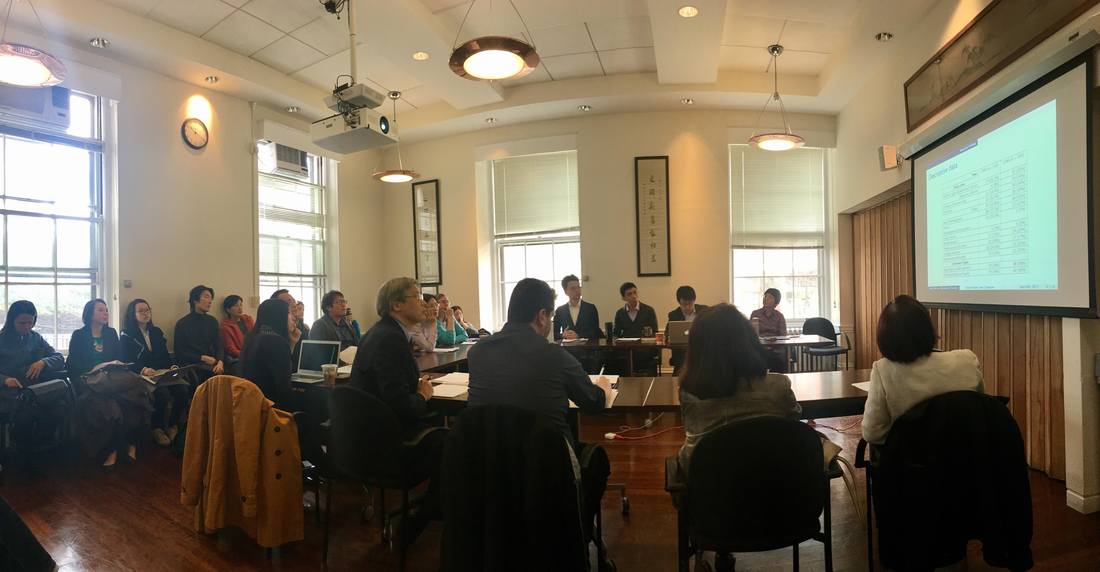
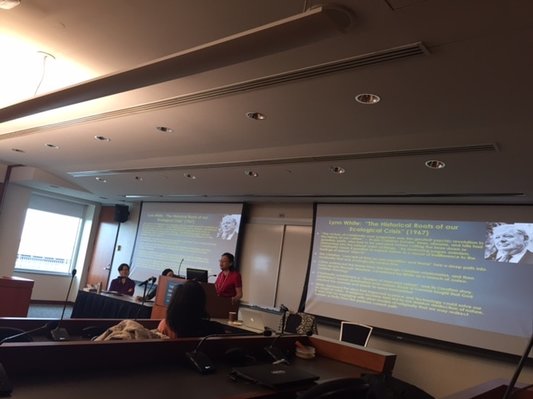
 RSS Feed
RSS Feed